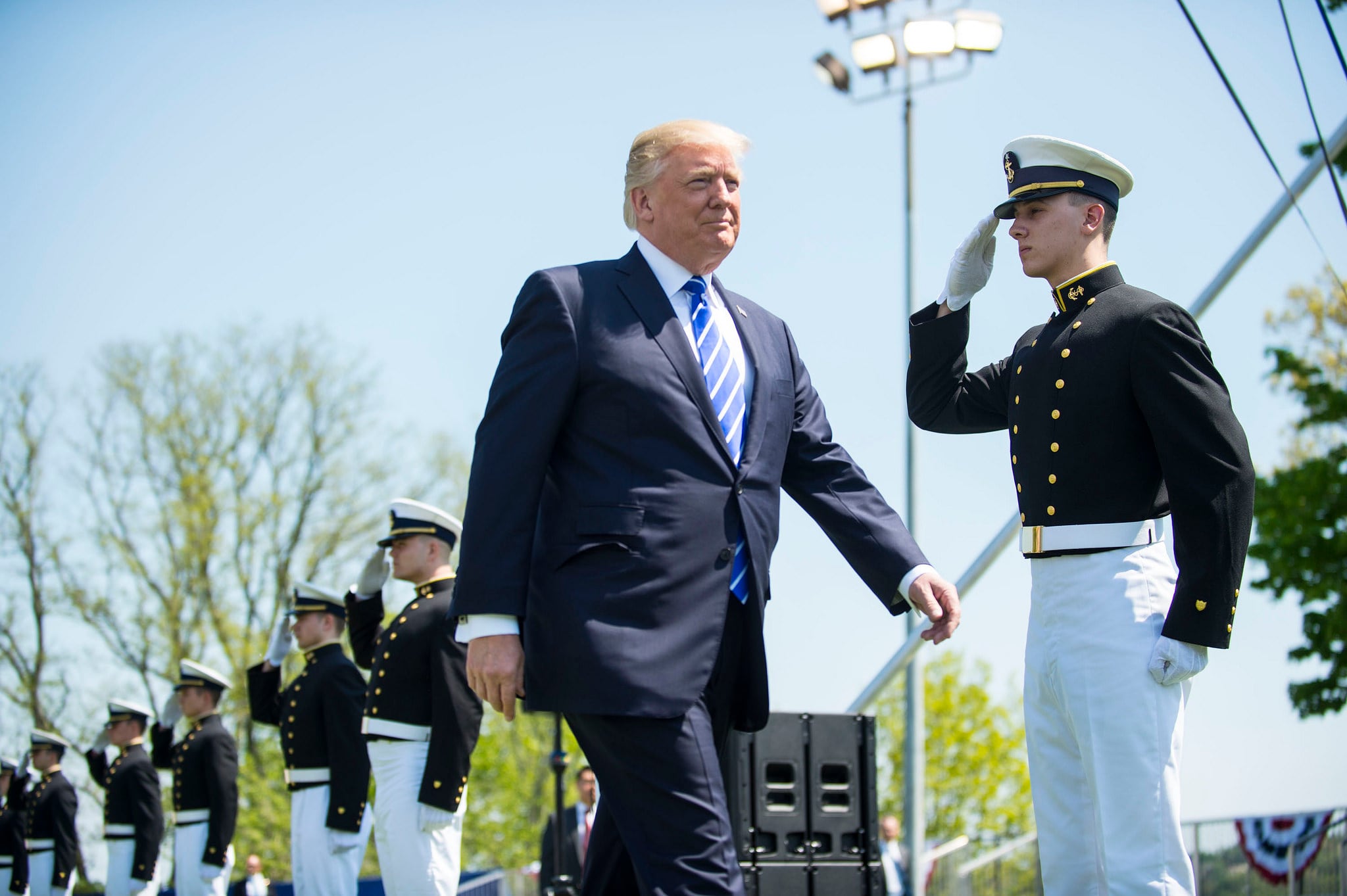WASHINGTON – With the Trump administration making it clear that American defense sales abroad are a fundamental part of its economic and security plans, two key industry trade groups are hoping now is the time to push through a major change to the defense export process.
The Aerospace Industries Association this week delivered a letter to Secretary of State Mike Pompeo calling for the creation of a national security cooperation strategy that would increase both transparency and speed to the military export system.
The 21-page AIA letter with 11 broad recommendations for how the Trump administration should handle defense exports to grow the industrial base, has been endorsed by the National Defense Industrial Association, America’s other major defense industry trade group.
The push for a national Security Cooperation Strategy started under Fanning’s predecessor, David Melcher. But AIA is hoping to get fresh energy behind that push during the current review period for the new arms control export rules proposed by the administration.
RELATED

The association isn’t “advocating to getting to ‘yes’ faster; we’re advocating for getting to the right answer faster, whether it is ‘yes’ or ‘no,’” Eric Fanning, AIA’s CEO, told reporters this week.
“This was something that frustrated me when I was in government,” added Fanning, who served as both Secretary of the Army and Acting Secretary of the Air Force during the Obama administration. “If the answer is ‘no.’ it’s helpful to get to it quickly so we’re not frustrating allies and partners.”
AIA’s goal is twofold. First, to create a strategy guiding America’s goals with foreign weapon sales, which would be informed by the National Security Strategy and National Defense Strategy. While not wanting to commit to a format, Fanning said he could envision a largely classified report that would lay out where America needs more capability and how allies could fill it.
As an example, he held up the ever-present need for more lift capability in Africa. If the U.S. knows it needs that capability, having a strategy would allow Washington to guide partners in Africa towards procuring lift capabilities over other items they may request instead.
While acknowledging that domestic desires don’t match up with what the U.S. thinks countries need, Fanning argued that having a cohesive strategy involving State, Commerce and the Pentagon would allow a clear voice that could impact those decisions.
“Saying ‘no, you can’t have X’ is different from saying ‘you can’t have X, but you could have Y,’” Fanning said. “If we can paint a picture of how them increasing certain capabilities does help them because it helps the broader effort, I think it helps us make our case.”
Remy Nathan, AIA’s vice president of international affairs, added that having a strategy could also allow the U.S. to guide partners on how best to improve in order to be cleared for the system they truly desire. If a nation can’t be sold a system because of industrial security concerns, for example, a broad strategy would allow the entirety of the U.S. government to give clarity on how to improve that.
RELATED

Point person needed
The second half of the strategy would involve clarify a point person, or at least office, who has oversight on the entire weapon exports process.
Right now, various offices at DoD, State and Commerce all have a piece of defense exports, and there is no single person who is the export czar, for lack of a better term. Appointing such a person, or creating a board of some kind, would allow direct oversight and make sure individual cases are not getting caught in the gears of the system.
“This issue here isn’t that the system is broken. It’s that its burdened,” said Nathan.
Fanning again stressed this isn’t about turning all cases that are denied into American defense sales, but rather about making sure that everyone involved finds out what the status of their request is. An ally shouldn’t have to wait months and months to get a no answer, which would lead to confusion and frustration, industry has argued.
The letter from AIA is neutral on where that office or individual could reside, although given the interagency nature of the process, it may make sense to be tied into the White House staff itself.
Regardless of where it lives, however, the point person would be needed to ensure the security cooperation strategy is being carried out, Fanning said.
“By design or by accident, things get stuck a lot, and if someone is at least monitoring it we can push it along and get it through the system,” he noted.
Aaron Mehta was deputy editor and senior Pentagon correspondent for Defense News, covering policy, strategy and acquisition at the highest levels of the Defense Department and its international partners.







